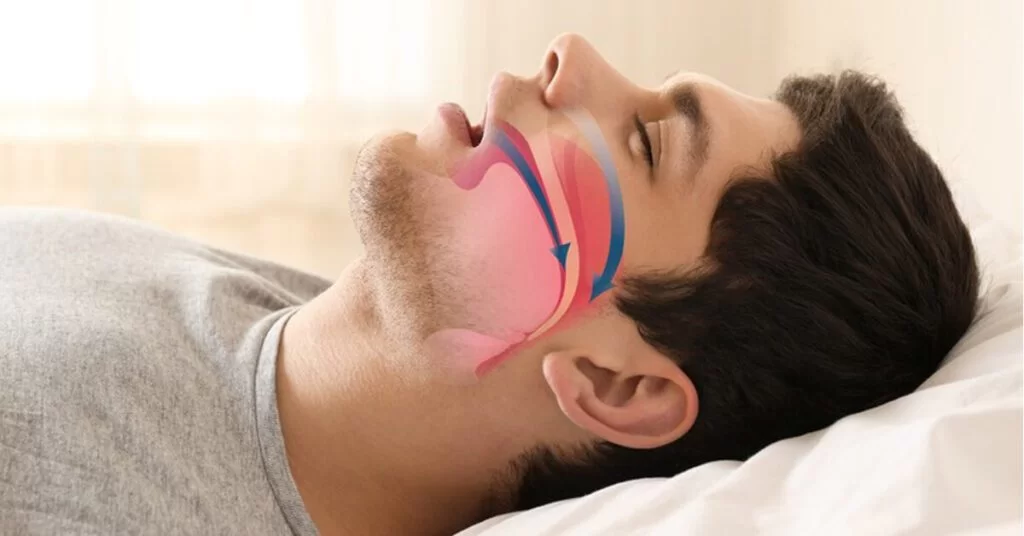Sleep Apnea Exercises
If you’ve been struggling with sleep apnea, you’re not alone. This condition affects millions of people worldwide, disrupting sleep and potentially leading to severe health complications. While there are many treatments available, including CPAP machines and surgeries, some individuals are exploring natural methods to alleviate their symptoms. One such method gaining traction is sleep apnea exercises.
These exercises are designed to strengthen the muscles involved in breathing, particularly in the throat, tongue, and jaw. Let’s dive into how they work, why they’re effective, and how you can incorporate them into your routine to improve your sleep quality.
What is Sleep Apnea?
Sleep apnea is a condition where breathing repeatedly stops and starts during sleep. The most common type, obstructive sleep apnea (OSA), occurs when throat muscles relax too much and block the airway. Symptoms include:
- Loud snoring
- Gasping for air during sleep
- Daytime fatigue
- Morning headaches
Untreated sleep apnea can increase the risk of heart disease, stroke, and other serious health issues. Fortunately, addressing the condition through targeted exercises can lead to significant improvements.
How Do Sleep Apnea Exercises Work?
The goal of these exercises is to strengthen and tone the muscles in your throat, tongue, and jaw, preventing them from collapsing during sleep. By regularly performing these exercises, you can:
- Reduce Snoring: Strengthened muscles help keep airways open.
- Improve Breathing: Enhanced muscle tone supports better airflow.
- Enhance Sleep Quality: A clearer airway leads to uninterrupted rest.
Effective Sleep Apnea Exercises
Here are some proven exercises to help combat sleep apnea:
1. Tongue Exercises
- Tongue Slide: Place the tip of your tongue against the roof of your mouth and slide it backward. Repeat 10-15 times.
- Tongue Press: Press your tongue against the roof of your mouth and hold for 5 seconds. Repeat 10 times.
2. Throat Exercises
- Vowel Sounds: Exaggerate the pronunciation of vowels (“A,” “E,” “I,” “O,” “U”) for 3 minutes a day.
- Singing Therapy: Singing strengthens throat muscles. Try holding notes or singing scales.
3. Jaw Exercises
- Jaw Resistance: Place your hand under your chin and try to open your mouth while resisting the motion with your hand. Hold for 5 seconds. Repeat 10 times.
- Chewing Simulations: Mimic chewing motions with your mouth closed for 2 minutes.
4. Soft Palate Exercises
- Palate Lift: Open your mouth wide and say “ah” while lifting your soft palate. Repeat 20 times.
- Breathing Exercise: Inhale deeply through your nose, hold for a few seconds, and exhale forcefully through your mouth.
Consistency is key. Dedicate 10-15 minutes daily to these exercises to see noticeable improvements over time.
Complementary Support: The Stop Snoring Exercise Program

If you’re looking for a structured approach, the Stop Snoring Exercise Program offers a comprehensive guide to managing snoring and sleep apnea through targeted exercises. This program has garnered high ratings, countless positive reviews, and has been purchased by many individuals seeking a natural remedy for sleep apnea.
With step-by-step instructions and detailed video demonstrations, this program simplifies the process of strengthening your airway muscles. Many users have reported significant reductions in snoring and improved sleep quality after consistent use.
Take the first step toward better sleep by exploring this effective program. Learn more here.
Benefits of Sleep Apnea Exercises
Incorporating these exercises into your routine offers numerous benefits:
- Non-Invasive: Unlike surgeries or devices, exercises are natural and painless.
- Cost-Effective: No need for expensive equipment or medical interventions.
- Improved Overall Health: Better sleep contributes to enhanced mental clarity, mood, and energy levels.
Real-Life Success Stories
Many individuals have experienced life-changing results by adopting sleep apnea exercises. Here are a few examples:
- Mark, 45: “I used to rely heavily on my CPAP machine, but incorporating these exercises has made a huge difference. My snoring has decreased, and I feel more rested.”
- Jessica, 38: “The Stop Snoring Exercise Program was a game-changer for me. It’s easy to follow, and the results speak for themselves. My partner and I are finally getting peaceful nights!”
- Liam, 52: “I was skeptical at first, but these exercises really work. Pairing them with the Stop Snoring Exercise Program has improved my sleep quality dramatically.”
Tips for Success
- Stay Consistent: Dedicate time daily for these exercises.
- Combine with Healthy Habits: Maintain a healthy weight, avoid alcohol before bedtime, and sleep on your side to enhance results.
- Track Your Progress: Use a sleep diary or app to monitor improvements in your symptoms.
Take Action Today
Don’t let sleep apnea control your life. With simple, targeted exercises, you can take significant steps toward better sleep and overall health. For a guided, proven approach, check out the Stop Snoring Exercise Program. This program has already helped thousands of people overcome their snoring and sleep apnea symptoms naturally.
Invest in your health and reclaim restful nights. Click here to learn more.
